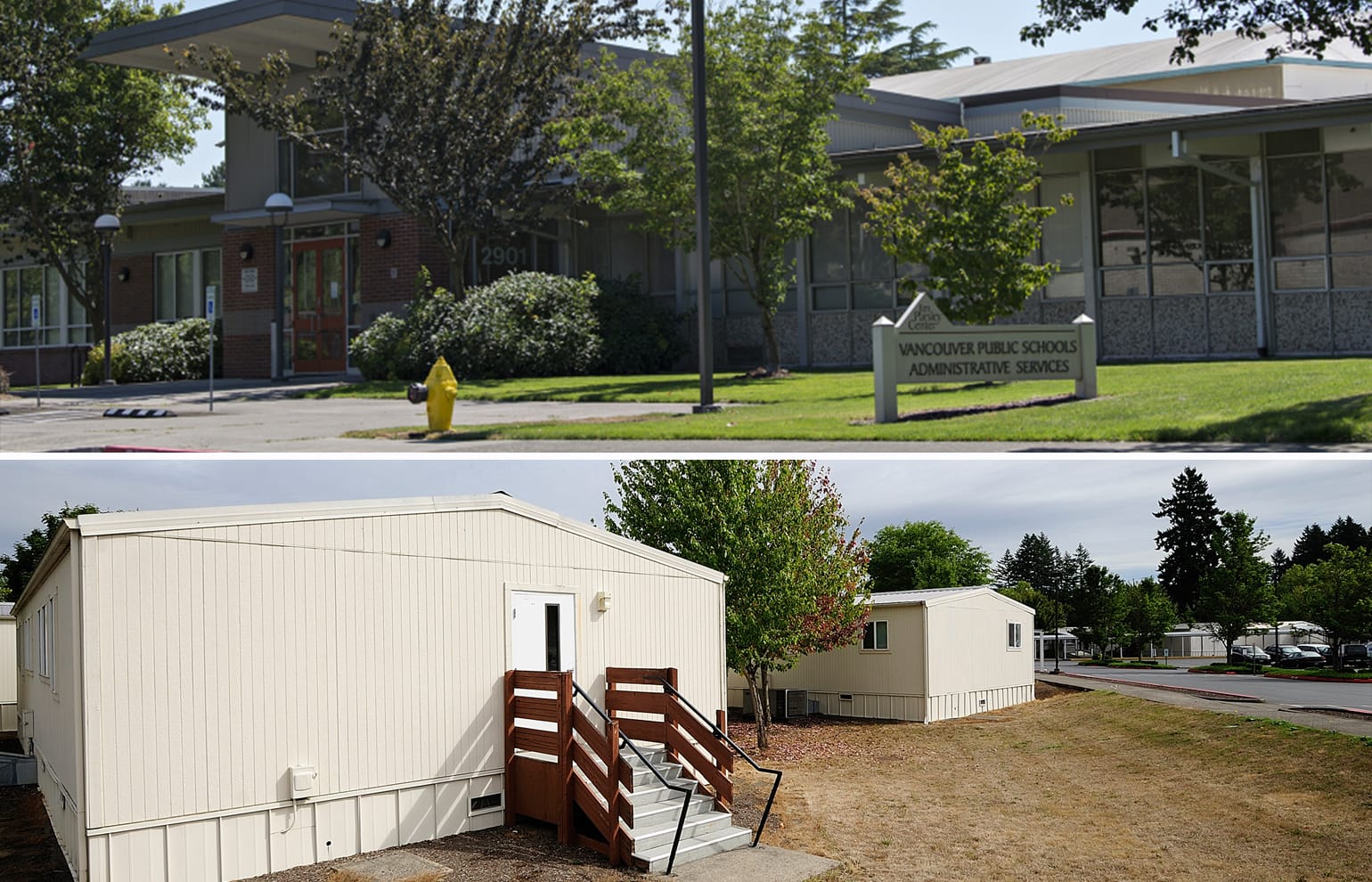After five recent allegations of educator sexual misconduct, Evergreen Public Schools leaders promise the district is now doing more to keep students safe from predatory teachers.
Still, Superintendent John Steach suggests the issue is a broader societal problem rather than a district-specific problem.
“Sorrowfully, it happens in our society,” Steach said. “We have to make sure we’re protecting our kids as much as we can.”
But a review of Evergreen’s policies compared with Vancouver Public Schools’ suggests the district still has more vague standards and provides less training than its comparably sized neighbor.
As detailed in Sunday’s Columbian, five former Evergreen district staff members have been investigated for sexually assaulting or having inappropriate relationships with students since 2015. They are associate principal Sadie Pritchard, substitute teacher Mark Lugliani, Mountain View High School band teacher Eric Smedsrud, Evergreen High School physics teacher Matthew Morasch and Evergreen High School drama teacher Stephanie McCrea.
Three of those educators — Pritchard, Lugliani and Smedsrud — were previously reprimanded for misconduct involving students, or showed warning signs that they weren’t setting appropriate boundaries with students.
While impossible to draw a direct line from Vancouver Public Schools’ policies to student safety, that district has gone nearly a decade since a staff member was publicly accused of sexually assaulting or pursuing an inappropriate relationship with a student.
Two high-profile cases emerged at Skyview High School, Vancouver Public Schools’ largest high school, in 2010. Science teacher Nathan J. Botnen was convicted and sentenced to 18 months in prison after having sex with a 17-year-old student that year, and a privately paid band assistant was arrested on six counts of sexual misconduct with a minor. Those charges were later dismissed after a judge ruled the assistant had no professional authority over the students.
Still, educator sexual misconduct on the whole is rare, and Clark County schools appear to trend below national averages.
According to research by educational leadership professor Charol Shakeshaft of Virginia Commonwealth University, who is a leading expert on educator sexual misconduct, about 7 percent of students in the United States reported having physical sexual contact with an adult in their school, typically a teacher or coach. That was 3.5 million students in 2004, when the study was done.
Expand educator misconduct to any cases where a teacher or coach doesn’t touch a student, but shares pornography, makes sexual comments or masturbates in front of a student, and that national statistic expands to 10 percent of all students.
Training required
Evergreen’s Steach and Human Resources Director Jenae Gomes point to required regular training for teachers and administrators, clearer policies on communication with students and a “passion” for protecting children among what’s going right in the county’s largest school district.
New teachers and other staff members are required to sit through a 35-minute sexual misconduct course developed by online-learning company Vector Solutions as part of its SafeSchools suite, a program used across the country.
Employees take the same classes on a three-year rotation. They also attend annual training with their building principals reviewing district policies, including the district’s boundary invasion policy. That standard, adopted in 2016, broadly instructs district staff not to “intrude on a student’s physical and emotional boundaries unless the intrusion is necessary to serve a demonstrated educational purpose.”
Staff spend substantial time on bystander training, focusing on possible warning signs of inappropriate relationships, like a staff member buying a student a drink at a sporting event or giving them a gift. Those things may not seem alarming in isolation, Steach said, but in combination could be red flags.
“What you’re going to find is the people who are going to identify those grooming behaviors are going to be the teacher, the paraeducator, the people who identify those things and say, ‘That doesn’t look right,’ ” Steach said.
Vancouver Public Schools, meanwhile, has required since the 2006-2007 school year that every district staff member take an annual training called “What Every Employee Must Be Told.”
The 66-minute program, also developed by Vector Solutions, provides an overview of boundary invasions and sexual misconduct. Employees also take the district’s own policy course, which covers 14 district policies complementing the SafeSchools training.
One of those policies, which was adopted in 2013, outlines examples of boundary invasions between staff and student. Unlike Evergreen’s policy, which is more broad, Vancouver homes in on specific things teachers are told not to do with students. That includes sexual contact, but can also include sending students on personal errands unrelated to school, addressing students by pet names or giving a student a ride alone in a nonemergency situation.
Coaches also sit through similar training, led by Marilee Scarbrough, the district’s chief legal officer, and a human resources representative.
“It’s important to be specific,” Scarbrough said. “How else will people understand? That was very intentional.”
Whether that training sticks in Evergreen Public Schools, however, is unclear. Union leadership describe the training as a “check mark.”
“We do it because we have to,” Evergreen Education Association President Bill Beville said. Furthermore, Beville added, teachers were not paid for that online training until this year, when the district negotiated for additional contract hours allowing teachers to take the training.
“We just wouldn’t do it on our free time, so we had to negotiate it,” Beville said.
Steach brushed off that characterization, suggesting Beville, an elementary school teacher, has not been personally affected by the issue and therefore cannot speak to the importance of the training. He said he is personally passionate about student safety, and that the district will “learn from its mistakes” in order to protect students.
“You talk to staff members at Evergreen High School, I guarantee you they take this very seriously. You talk to the staff members at Mountain View (High School), I guarantee they take this very seriously,” he said. “This has to become personal before you become passionate about it. Those of us who have been involved in this, we’re passionate about it.”




